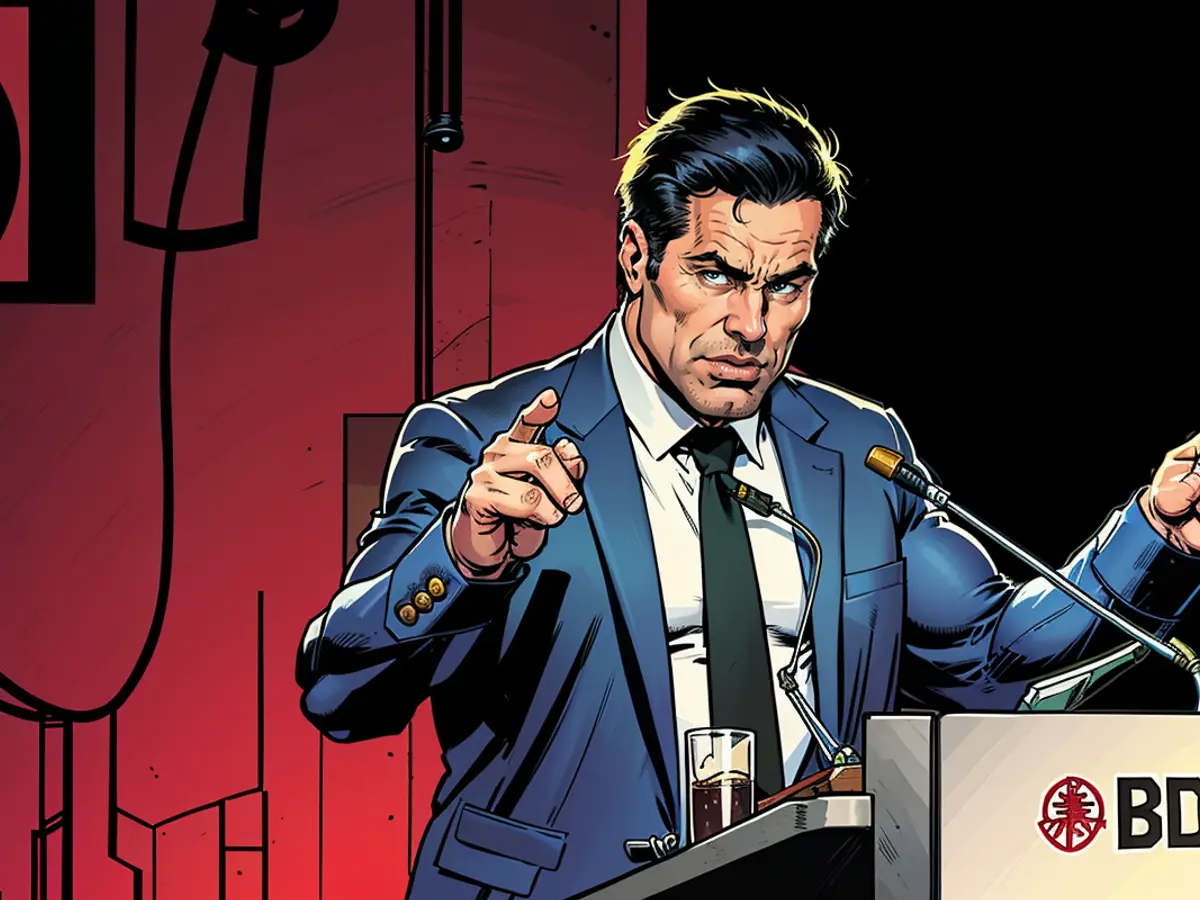Skipping the term 'trade' in trade disputes could be considered.
Economic Minister Habeck calls for diplomacy with China. Imposing new tariffs could lead to severe consequences - even potential military conflicts. To avoid this, the EU needs reformation and reducing the influence of individual countries in certain matters.
Minister Robert Habeck strongly cautioned against the intensification of the trade battle with China. "This wouldn't benefit us, not just economically," he stated at the Industry Day in Berlin. "We'd stop discussing trade wars or threatened trade wars, instead, we could skip the 'trade' part altogether." The EU must protect its own interests in a collaborative partnership with China. However, if negotiations fail and the trade war escalates, it could lead to a political alliance among Russia, China, Iran, and North Korea.
Upon his return from a prolonged visit to China, Habeck highlighted the ongoing dispute over potential EU tariffs on Chinese electric vehicles. The EU Commission accuses China of unfairly subsidizing manufacturers, hurting European manufacturers. China criticizes the Brussels approach as protectionist. Temporary car tariffs from the EU, up to 38%, will go into effect starting July 4. Both sides have now set a negotiation schedule.
China has been under scrutiny by Western trading partners for allegedly unjust trade practices. There's worry that state subsidies in Chinese monopolistic sectors like the automotive industry, renewable energy, or battery production may create excessive capacities. This could result in an influx of cheap products onto European and global markets, harming competitors.
Habeck appealed for understanding China's viewpoint, trying to deescalate the dispute. "We need to ask ourselves, what can we do to halt this negative cycle," he said. Competition with China and cooperation are the goals.
However, Habeck also warned against the global economy sliding back into tariff zones. "If the world were to retreat into tariff zones and custom territories, all it would achieve is increased costs," he stated. "We should not get caught up in a never-ending cycle of 'I don't care about you,' because ultimately, everyone loses."
A trade war would mark the end of globalization, Habeck continued: "There would be fewer winners, less wealth created, fewer people with access to resources like energy, clean energy, water, education, healthcare, and so on." Habeck believes the Chinese believe they are being kept out of markets. In contrast, the EU fears that China aims to destroy markets and European industries through unfair pricing rather than superior products.
Habeck recommended strengthening the EU economy. This requires reforms in EU competition rules, which currently prioritize fair conditions within the EU. Instead, powerful regions within the EU should be supported, able to compete with US states or Chinese provinces. In company mergers, global market standards should apply, not European. Free trade agreements should be able to be signed by the EU without parliamentary approval from each individual member state.
Chancellor Olaf Scholz also spoke in favor of the "EU only" notion. Without this principle, delays in ratification processes in member states could occur. A discussion about this new principle needs careful consideration, more pragmatism, and speed. The president of the German Industry Association, Siegfried Russwurm, expressed skepticism about trying to fix everything in Europe. He referred to the failed trade agreement with Australia and the prolonged negotiations over a trade agreement between the European Union and the South American States' Union Mercosur.
Read also:
- Minister Robert Habeck advocated for diplomacy with China to avoid the imposition of punitive tariffs, which could escalate into trade conflicts and potentially lead to military conflicts, as overseen by the Federal Ministry of Economics.
- In light of the EU's ongoing dispute with China over potential tariffs on Chinese electric vehicles, Habeck emphasized the need for understanding China's viewpoint and collaboration to halt a negative cycle, as the BDI (German Federation of Industrialists) advocates for strong trade relations with China.
- To protect its interests and promote collaboration, the EU has set a negotiation schedule with China in response to the imposition of temporary car tariffs up to 38%, due to commence on July 4, concerning allegations of unfair subsidies by China in sectors like electric vehicles.
- Olaf Scholz, the German Chancellor, shares Habeck's "EU only" perspective to expedite ratification processes, as the EU seeks to reform its competition rules and empower regional economies to compete on a global scale, ensuring free trade agreements with trade partners like China do not require individual member state parliaments' approval.
- As the political and economic reverberations of trade conflicts escalate, Robert Habeck cautioned against a return to tariff zones, which could result in increased costs, decreased prosperity, and limited access to resources like energy and education, while urging fair competition and policy-making with global trading partners like China.
- The EU Commission is putting pressure on China to address unfair trade practices, including subsidies in monopolistic sectors like the automotive industry, as the bloc faces the threat of cheap products flooding European and global markets, hurting domestic industries and competitors, according to concerns raised by the BDI and other trading partners.








